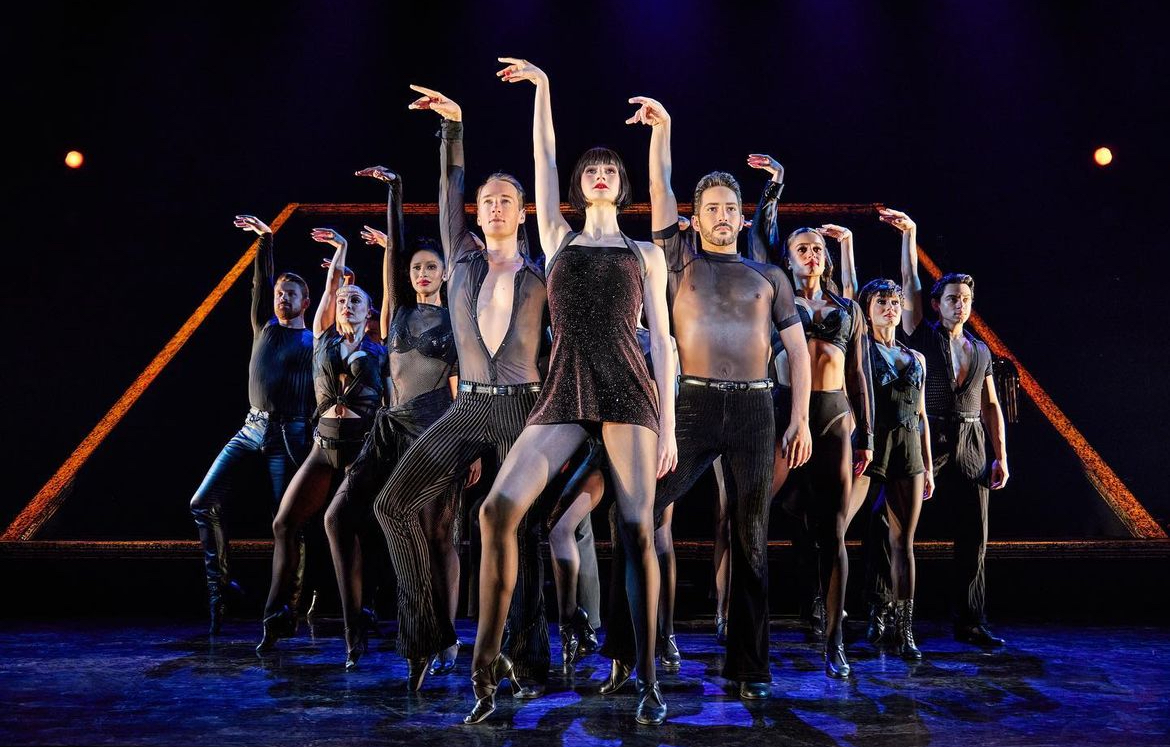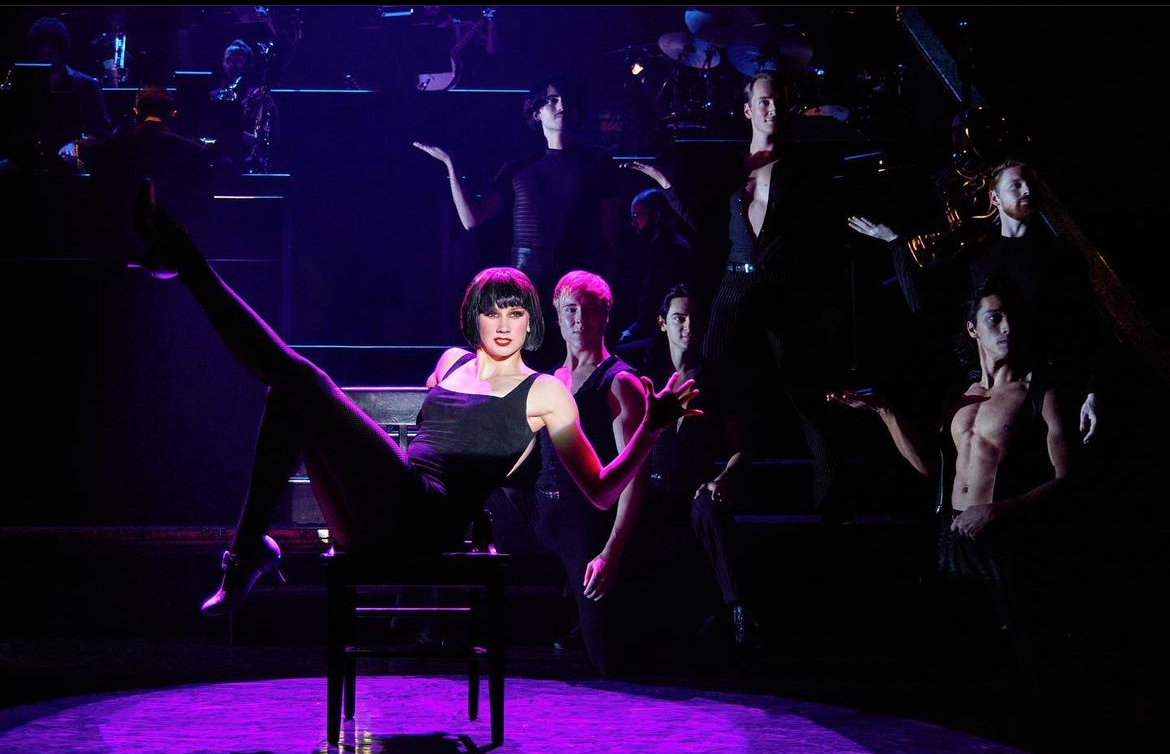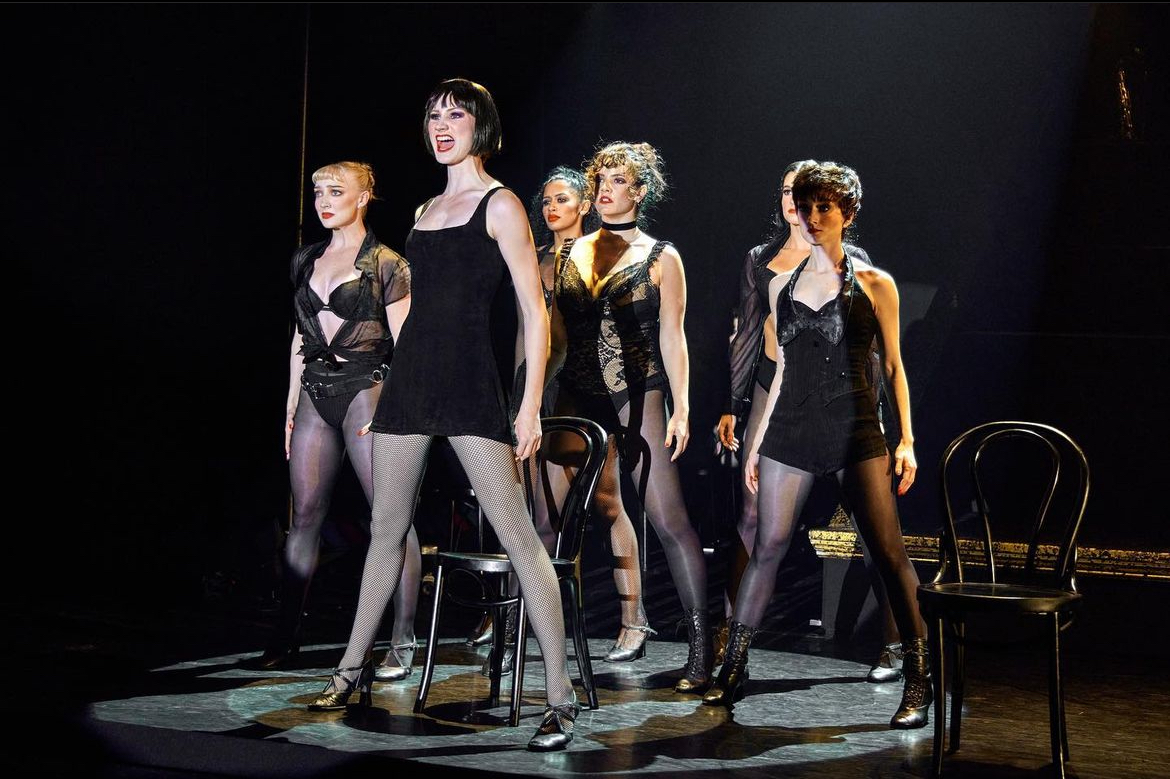By Meghan Decan
The theatre vibrated as the audience tapped their feet along to “All That Jazz” during the Toronto stop of Chicago’s North American tour in January. Hands swayed behind dancers’ backs as they moved, forming a pyramid around their leader, Kailin Brown, playing Velma Kelly – a sensual, feminine character known for her vaudevillian talents and charm.
Brown, a non-binary actor who grew up in Ontario, is part of a wave of trans and non-binary actors taking on cisgender roles. Justin David Sullivan, who is also non-binary, recently appeared in & Juliet’s Toronto debut and Jinkx Monsoon, a trans performer and drag queen, has landed Broadway roles in Chicago and Little Shop of Horrors. There’s progress behind the scenes, too – the musical Six, now playing in Toronto, was co-written by a non-binary composer and lyricist, Toby Marlow. That’s still a rarity in Canada, where, according to the Playwrights Guild of Canada, just five per cent of plays produced for the 2021-2022 season were written by trans, non-binary or two spirit authors. And while trans folks may be winning roles, most weren’t written for them: The HowlRound Theatre Commons’ most recent survey of U.S. world premieres found less than seven per cent of characters in the 2019-2020 season were trans, non-binary or gender nonconforming.
While Brown hopes to one day take on trans or male roles, landing Kelly was a dream come true. As a child, Brown spent countless nights watching Singin’ in the Rain with their grandparents. They studied dance and did community theatre, playing Annie in Annie and JoJo in Seussical the Musical, before landing at Etobicoke’s renowned School of the Arts (ESA) as a teenager, where they learned everything from vocal technique to Laban movement analysis.
When Brown took the stage in Toronto, they had a friendly face from ESA in the front row. Patricia Warnock, who taught Brown, recalled coaching Brown to play Sally Bowles in Cabaret. “Watching them as Velma, and them just kill it vocally, was pretty special. I was in tears.”
Warnock continues to see Brown when they return to do workshops with ESA students and says they’re an excellent role model. “Being so open about their journey as a non-binary performer has made a huge difference to students wondering if there’s a place for them in post-secondary and professionally.”
Sitting back on a hotel bed in San Jose during a day off from tour, a smile rested on Brown’s face as they recalled ESA, a school with all-gender bathrooms, a large queer student body and pianos to play in the hallways. “We never had bullies,” they said. After ESA, Brown studied at Pace University in New York City, which helped them land an agent. Next came an audition for Chicago, where Brown found themselves in a room of cis women. “It’s so weird when you’re the only non-binary trans person in the room because all the girls had their full faces of makeup, and their beautiful outfits and that’s just never really my vibe,” Brown said, then laughed. “I think I maybe had mascara on.”
The role of Kelly wasn’t on their radar, despite it going to a non-binary performer, Logan Floyd, in the previous tour. But they were called back to understudy all three female leads: Velma Kelly, Roxie Hart and Matron “Mama” Morton. Two weeks before rehearsal, Brown received the offer to play Kelly. Brown wasn’t upset to play a woman. In fact, they saw it as an opportunity to put their own masculine spin on the character.
“Velma’s so strong and powerful and those are traits we commonly associate with masculinity. I love being able to take a female role and her feminine power but merge it with my masculine power,” Brown said. “That’s why my Velma is so different from others. Most people who play Velma are women and come at it from being a woman. I come at it from being trans non-binary.”
For years, professional theatre has had a lack of trans representation. Some characters, like Jo from Jagged Little Pill, hint towards being gender-nonconforming but get played as cisgender. The current touring production of the show has been reworked to be more inclusive, opening casting up to performers of all genders. Jo is currently being played by another Toronto-based non-binary performer, Jade McLeod.
This approach is also taken in Ontario schools. Peel District drama teacher Charlene Cook said high school drama classes have become more inclusive: “A lot of playwrights who are writing now have characters who can be any gender. It’s no longer ‘this character is female so you have to play a girl.’ And for kids who are still discovering themselves, who might not be comfortable with gender-assigned roles, it gives them that flexibility to be themselves.”
This kind of representation has an impact on the audience. Ace Kenigsberg, 19, who is trans, saw Brown in Chicago. “It’s nice to see people like me on stage. To see them playing a cis character makes me feel like there’s a place for trans people in the world,” Kenigsberg said.
In Toronto, Brown and Katie Frieden, who plays Roxie Hart, took the stage for one final number. Beginning with a Charleston, Brown and Friedan kicked their legs. Their hips popped as they danced towards a show-stopping moment: their bodies pressed against each other as they walked across the stage in sync. With a few last shimmies, heels clacking against the floor, Brown and Friedan cartwheeled, then ended the number on one knee, each holding a large bouquet of red roses. When the curtains closed, Brown stepped off stage. They took a deep breath and pulled off their wig, revealing blonde curly hair. Kelly was gone and Brown was back.
Off stage, Brown is goofy and loves Lord of The Rings. Towards the end of the interview in San Jose, they grabbed a snack, bursting into laughter as their laptop almost tipped over. On stage, they present a different persona – poised and fearless. And they’re ready to take on new roles regardless of gender. Doing so, they believe, will continue to positively impact their community.
“I get messages from young trans and non-binary people all the time after they come to see the show, and that’s why I do what I do,” Brown said. “My one goal is to affect somebody’s life the same way other performers have affected me in a positive way. Getting those messages, getting that recognition from other people like me who are coming up in the industry, that they felt seen by me playing Velma… That’s worth its weight in gold.”









